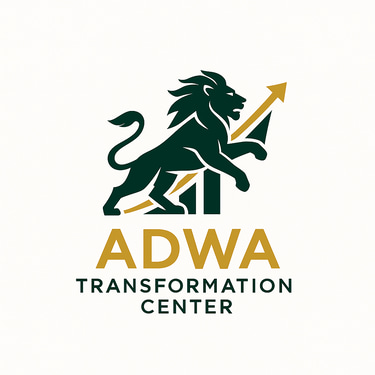Ethio Telecom's Challenges Amid Ethiopia's Currency Risks, By Dr Abush Ayalew
Imagine standing on the deck of a massive ship, its towering sails catching the wind as it glides smoothly across calm waters. But in the distance, dark clouds gather. Ethio Telecom, the pride of Ethiopia’s telecommunications industry, is this ship—steady for now, but facing an approaching storm that could test its strength. That storm? The rapidly devaluing Ethiopian Birr and the company’s exposure to foreign currency debt. For investors, the question is: can Ethio Telecom navigate these troubled waters without capsizing?
ECONOMY AND STOCK MARKET
10/19/20245 min read


(By Dr Abush Ayalew)
In this article, we’ll explore the intricate balancing act of debt, growth, and currency risk Ethio Telecom faces. We'll also compare its debt exposure to that of its African peers and the global telecom giants. Along the way, we’ll break down the power of leverage—a financial tool as effective as it is dangerous.
The Calm Before the Storm: Ethio Telecom's Debt Position
Ethio Telecom’s financial sails are full, powered by its dominant market position. It boasts a Debt-to-Equity (D/E) ratio of just 5.9%, an astonishingly low figure compared to its African counterparts like MTN Group (31.6%) and Airtel Africa (48.6%). Globally, telecom companies like Verizon and Vodafone operate with D/E ratios as high as 100% to 150%. In this context, Ethio Telecom looks like the straight-A student who refuses to borrow anyone's notes.
But here's the catch: telecom is a capital-intensive industry, and borrowing can help companies grow faster. Think of debt like caffeine—too little, and you might feel sluggish and fall behind. Too much, and you’re jittery and headed for a crash. Ethio Telecom’s lack of leverage might seem conservative, but could it also limit its ability to grow in a fast-evolving market?
“Debt is the dynamite that can either clear the way for progress or blow up your future plans. It’s all in how you handle it.”
The Double-Edged Sword of Leverage
Debt can be a company’s best friend or its worst enemy. When used responsibly, debt allows businesses to invest in critical infrastructure without diluting shareholder value. In the telecom industry, that means borrowing to fund 5G rollouts, fiber-optic networks, and expanding mobile financial services like Ethio Telecom’s Telebirr. These are the kind of moves that keep a company ahead of the competition.
But let’s be clear—debt is a double-edged sword. When times are good, debt boosts growth. But when the winds change—say, with a rapidly depreciating local currency—debt can quickly become a burden. Ethio Telecom has $330 million in USD-denominated debt. While that number might not seem high for a company of its size, it’s tied to the Ethiopian Birr, a currency that has been losing ground faster than a car with a flat tire. Over the past year, the Birr has plummeted from 57 to 120 per USD (Company Prospectus)
So, what does that mean for Ethio Telecom? A debt burden that used to be manageable now weighs twice as much in local currency. It’s like buying a pizza at $10 today and realizing tomorrow you have to pay $20 for the same slice. The cost of servicing that debt has doubled, even though the actual dollar amount hasn’t changed.
“Debt is like a swimming pool—great when you’re in control, but if you’re not careful, you could find yourself in over your head.”
The Currency Storm: Birr vs. Debt
The Ethiopian Birr’s depreciation is the elephant in the room for investors. Let’s visualize this scenario: Ethio Telecom borrows $330 million at an exchange rate of 57 Birr to the dollar. At that time, its total debt in local currency terms was 18.8 billion Birr. Fast forward to today, and with the exchange rate at 120 Birr per USD, that same debt now amounts to 39.6 billion Birr. That’s double the original amount, all without borrowing a single extra dollar.
Here’s where the metaphorical storm clouds darken. Ethio Telecom’s future profits, earned in Birr, must now stretch to cover a debt that has grown in local terms. It’s like playing dodgeball in a gym that keeps getting smaller—eventually, it’s going to be hard to avoid getting hit.
"Borrowing in a foreign currency is like buying a yacht. It feels glamorous until you realize you have to pay the fuel bill."
African Peers: MTN and Airtel’s Leverage Strategy
Looking across the African telecom landscape, MTN Group and Airtel Africa operate with much higher D/E ratios of 31.6% and 48.6% respectively. These companies understand the power of leverage but also spread their risks across multiple countries. For example, MTN operates in 19 countries, which helps cushion the blow when one economy falters. Ethio Telecom, by contrast, operates in only one market—**Ethiopia**—leaving it more exposed to local currency risks.
MTN and Airtel Africa face their own currency risks, particularly in countries like Nigeria, where currency instability has also been an issue. However, their diversified operations allow them to weather these storms better than a company operating solely in one economy.
Should Ethio Telecom Take on More Debt?
Given its low debt levels, Ethio Telecom has room to take on more leverage to fund growth. Expanding its 5G network and further developing Telebirr could secure its position as a leader in Ethiopia’s telecom market. After all, competition is coming in the form of Safaricom, and staying ahead will require continuous investment.
But, and this is crucial, any new debt must be carefully managed. Ethio Telecom would be wise to avoid borrowing too much in foreign currencies unless those loans are hedged or protected against further devaluation of the Birr. Taking on local-currency debt could be a smarter option, allowing the company to raise funds without exposing itself to the volatility of the international currency markets.
Conclusion: Weathering the Debt Storm
In many ways, Ethio Telecom’s debt dilemma reflects a broader challenge faced by companies operating in emerging markets. How much debt is too much? How do you balance the need for growth with the risk of local currency devaluation?
Ethio Telecom’s 5.9% D/E ratio positions it as one of the more conservative players in the telecom world. This provides stability in the short term, but the company will need to find a careful balance between taking on more debt for growth and managing the risks associated with the volatile Ethiopian Birr. As an investor, the key question isn’t whether Ethio Telecom will survive—it’s how well it will thrive amidst these challenges.
Invest wisely, and remember: while the seas may seem calm now, storms can arise without warning. For Ethio Telecom, it’s about steering the ship with caution while keeping an eye on the horizon.
---
This article is for educational purposes and does not constitute financial advice. Investors should always conduct their own research or consult with a financial advisor before making investment decisions. The writer is not affiliated with or an owner of Ethio Telecom.
Dr. Abush Ayalew is a passionate advocate for financial literacy and empowerment. He holds an MBA in Finance from Lincon University (Gold Medalist) and has years of experience in the global stock market. He is the founder of Adwa Transformation Center, an online platform dedicated to providing accessible and practical financial education. Dr. Abush is also the author of several books on finance and investing. He believes that everyone has the potential to achieve financial freedom through knowledge and strategic action.
Ready to deepen your understanding of investment strategies and market dynamics? Enroll in our comprehensive stock market courses at Adwa Transformation Center and gain the knowledge and skills to navigate the complexities of the financial world with confidence! Visit our website: https://www.adwatransformation.com.


